Addicted and unhealthy family systems operate under a set of rigid and harmful rules. These rules are set in place as an act of survival. Unhealthy family systems don’t talk, they react. It’s not possible to communicate without fear of an explosion, or being shamed, judged or ridiculed. In addicted family systems there is no ownership of problems. Instead, a system of justification, excuses and blaming, prevail.
Below are 8 Key Behaviours Unhealthy Families Operate Under.
Emotional Incest – When a relationship between a parent and child violates the child’s boundaries putting them in the role of fulfilling the adult’s emotional needs. This occurs when children are used as a surrogate spouse. Because the addicted spouse is emotionally unavailable the child – usually the oldest – hears adult thoughts, issues and feelings. When family members don’t reach outside the family for support, they look for support, within. A mother may have inappropriate conversations with her child seeking the emotional relief she would ordinarily find with her spouse. Children who have been in the role of surrogate spouse feel responsible for the adults in their lives. Role reversal occurs and care-taking behaviours are rewarded. Mommy feels better after discussing her problems with the child. And the child grows up falsely believing they have power to make others, feel better.
Emotional Extortion – Controlling or manipulating someone’s emotions for your own personal gain or selfish needs. In addicted families love is conditional. When pleasing the addicted person, family members may experience a rush of pleasure. Praise or affection can be a bi-product of accommodating the addict’s needs. Just as withdrawing love or verbal abuse, is punishment, when saying no.
Passive Aggressive Behaviours – Is a disconnection between what the person says, and does. For example, do as I say, not as I do. Passive aggressive people tend to express their negative thoughts and feelings in a confusing manner such as, gossiping, avoiding, procrastinating, being sarcastic, rolling their eyes or exhibiting other, defensive body language. A person with passive aggressive behaviour can appear as smiling, resentful, sullen or hostile, yet when questioned, will state they’re ‘fine.’
Rigid, Shameful and Negative Thinking – In unhealthy families you’re either good, or bad. The family operates under black and white thinking, including all or nothing statements such as right or wrong, good or bad, or rigid ideas about how people should think, feel and act. Catastrophizing events and imagining and expecting the worst possible outcome, is normal. Should statements, such as you should have listened to me, or you shouldn’t feel that way, are common in conversations. The word should is a shaming word and a reminder to think and feel the same as the rest of the family.
No boundaries – Poor boundaries happen when it’s unsafe to have your own opinions, thoughts or feelings. In addicted homes, members of the family must think and feel the same as the addicted person, otherwise there is a sense of disloyalty or of being, bad. Above all, you must keep the peace by not upsetting the addict. Poor boundaries don’t allow you to know where you stop and someone else begins. You’re enmeshed (entwined) with your loved ones. When you don’t have healthy boundaries your sense of self, is reflected by the people around you. You may allow others to take advantage of you and confuse manipulation, with love. Believing you can feel other people’s feelings is a sign of poor boundaries.
Caretaking – Doing for others what they can and need to be doing, for themselves. Caretaking others is a stressful, exhausting and frustrating, experience. Caretakers can fall into the martyr role believing that self-care and saying no, is selfish. Caretakers tend to think they know best. They can be judgemental and bossy. They don’t trust others to be able to solve their own problems and tend to jump in (even when not asked) and fix it. Caretakers attract needy people into their life and then complain about how tired they are. Caretakers can be dramatic and lay guilt trips on friends and family.
Denial – Denial is taking a problem and making it smaller than it really is. Denial happens when one refuses to accept reality or acts as if a painful event, thought or feeling, did not occur. Families with addiction use denial in their everyday lives to avoid dealing with uncomfortable feelings or areas of their life they don’t wish to admit. For example, a person who is a functioning alcoholic will deny they have a drinking problem, by pointing out they still have a job.
Delusion – Addiction is a delusional illness. While denial takes a problem and makes it smaller, delusion says, what problem? There’s no problem here. Delusion is a sincere belief that in spite of all the mounting evidence to the contrary, there is – NO PROBLEM. Because delusion is sincere, it’s also convincing. Which is why the family often believes the addicted person is telling the truth.
Families, who wish to recover from addiction, must step out of their family system, to do so. It’s important to make self-care your priority. Living with an addict is exhausting and traumatising. Be patient with yourself. You’ll need time to recover. Avoid controlling the addicted person’s behaviour and focus on making changes in your life. Working harder than the person you’re trying to help, will only make you sicker. Asking for help and reaching out for support, will facilitate a happier and healthier, you.
Lorelie Rozzano.
www.jaggedlittleedges.com
If you or someone you know needs help, please call our confidential support line for assistance. 1 888 683-2479.
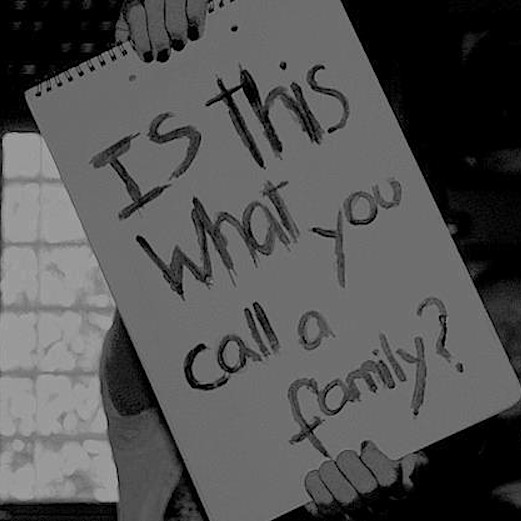
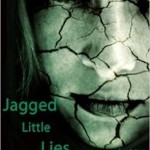

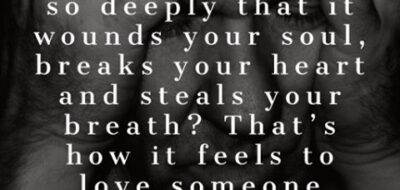
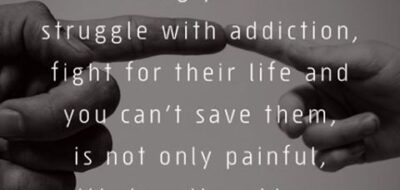
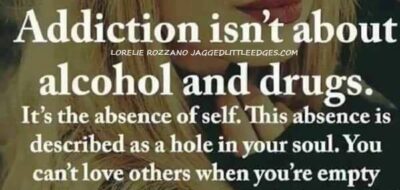
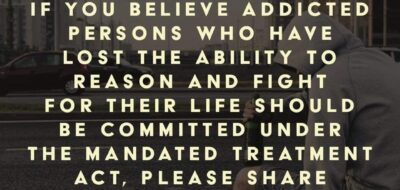
Crystal Schutt
I’m so interested in getting this book. My fiancé of four years just went to prison for 2 1/2 years he has been an addict for 15 years he is the love of my life. Heroin has torn our family to pieces its hurt us in the worst unimaginable way possible we have a 2 yr old daughter together and I have two other daughters 14 and 7. The first year we were together was the best my girls were so crazy about him and his daughter loves her daddy more than anything after the first year it went downhill from there he had gout really bad so he started going to the ER because he had no insurance he would get Percocets for the pain and it went from there he would get them off the streets and as time went on he would get stronger and more which got very expensive so that’s when he started using heroin. We were already not financially stable. He pawned my engagement ring, our tvs, stole our rent money like he was going to pay the rent over and over again and I didn’t know until they came to my door with eviction notices we came really close to being on the streets and he just did not care. He became a totally different person he was mentally and physically abusive to me he hurt me so badly I was and still am in a very deep depression to the point when he was here I felt suicidal. Now that he is gone I miss our family together so badly I’m miserable it’s so hard for me to be the mother I need to be because of my depression. I’m hurting financially I’m on the verge of losing everything I have no family but my girls, no help, no support. Our 2 yr old daughter doesn’t understand she misses him so so much every time Someone comes to the door she thinks it’s him she constantly cries for him I tried to take her to visit him but she cries the whole time trying to get through the glass. It kills me to see her like this. Of course now that he is clean he says it would never happen again that he would never put us through that and he would stay clean when he comes home but of course that’s what they all say in there. I’m just so lost, confused, hurt, depressed I just don’t know where to turn anymore. I just wanted to share this and talk about it with someone who understands. I have no support and have lost my friends because of all this he’s stolen and lied to everyone we know. Thanks for listening. I would really love to get this book.
Lorelie
Hi Crystal,
I am so sorry you’re going through all of this. First things, first. Please keep yourself and the babies safe and healthy. Have you tried NarAnon? It’s a great free way of getting support and learning more about addiction and your role in it. If you go to your local library and request that they purchase the Jagged series for lending, you’ll be able to read them for free. Please feel free to contact me on my face book page also. Sometimes people will put their copies up for ‘borrow’ and I do random book giveaways.
Best wishes, Lorelie Rozzano.
Tania
Hi can you get these in book for, see these snips on Facebook. Thanks Tania